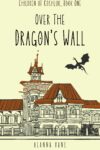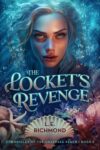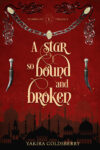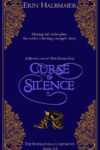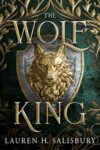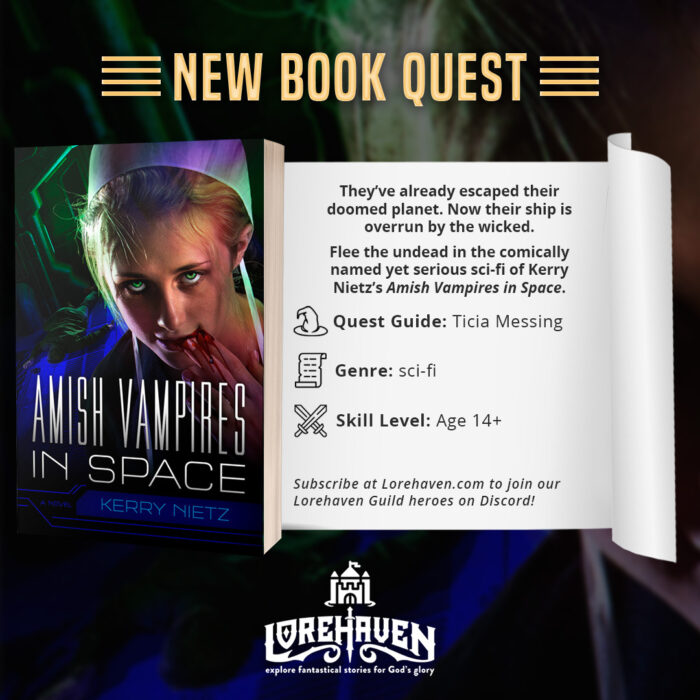A Shadowy Argument for Christian Fiction
Every once in a while, I’ll encounter people questioning the validity of fiction as a mode of communicating genuine truths.
Generally it’s the kind of doubt-casting that falls along the lines of whether writing is better as art or entertainment.
If it’s the latter, communicating something of substance is secondary.
If it’s the former, then it is absolutely essential. Good art always leaves those who engage it with something more than when he or she came upon it.
For most people reading this article, its fundamental question is probably a non-issue. Of course we can enjoy fictional stories and convey truth.
This week we feature Brett Armstrong and his novel Day Moon in Lorehaven Book Clubs. Stop by the flagship book club on Facebook to learn more about this story.
Subscribe to Lorehaven Magazine for free to download our new summer 2018 issue.
There is, however, a counter-argument worth addressing. All stories are abstractions of reality. The problem with abstractions is that they can actually come to supersede that which they represent. A strong example is The Hunger Games. If you read those books it is absolutely apparent Suzanne Collins does not think the world as it is functions in an acceptable manner.
Most of western civilization is more or less guilty of the villainy charged to The Capitol. Yet one would not know that from all of the fanfare, marketing, and bedazzling array of superficiality surrounding the movie adaptations of those books. There were cosmetics lines released as movie tie-ins. Red carpet premieres featured the standard, “Ooh, what is she wearing?” and “Who did he bring to the premiere?” type media noise. Spectacle, ignorance of want, and surfeiter are all put on trial through the course of the series. For all their clear themes and underlying messages, life imitated the art critiquing it.
A novel about genuine problems in the world shouted them in print, but it got lost in the adoration for the abstraction itself. Western culture seems to be battling the tendency to engage in endless distraction and self-interest at a moment’s notice.
In this light, abstractions seem like a bad thing and it presents a particular problem for Christian fiction, in that we tend to expect to emerge on the other side of it with something gained. As well we should. If reading fiction can shape our perception of reality and values—see the explosion of people interested in survival skills and archery after The Hunger Games—then it needs to be more than mental candy. If every Christian novelist just moved on to writing non-fiction, the problem would be solved, right?
A strategic withdrawal is unwise, because abstraction is not inherently a bad thing. In fact, if you agree with Plato, C. S. Lewis, or the Book of Hebrews, abstractions—shadows—are an integral part of understanding reality. Not just fiction pointing to the present world, but the present world to Heaven. That is a strong argument in favor of Christian fiction. Consider a well-known verse:
“Now faith is the substance of things hoped for, the evidence of things unseen.”
(Hebrews 11:1, KJV)
An elegant summary of every Christian’s lifeline: faith.
If you’re like me, there have been more than a few times when it was a challenge relying on the spiritual substance born of hope and evidence for unseen realities. Our senses are our pitons in the real world. Anytime we have to trust something that isn’t anchored through those senses we’re uncomfortable. After all, letting go of what’s holding you to a cliff face is a good way to fall.
Except, that’s exactly what God asks of us: trust a different set of anchor points, ones not forged from our senses.
Which also makes sense (pun intended). For the greater realities unseen we need links formed from the same. The Lord asks that we trust Him to keep us on the rock face.
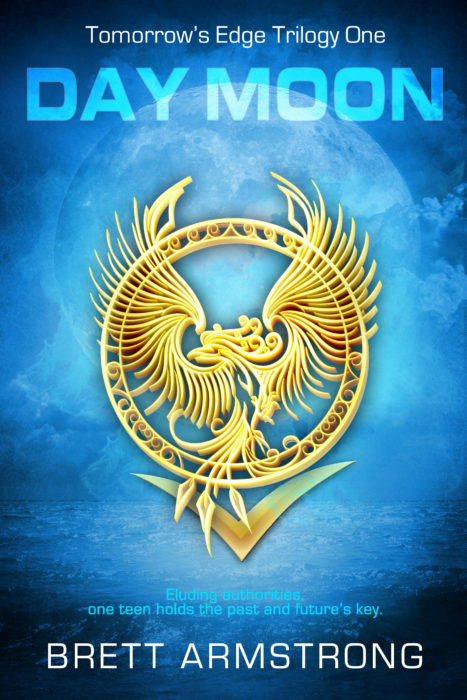
“An intriguing masterpiece of character relationships, marked by deception and betrayal, displays authentic human interactions and motivations on the story’s canvas.” — Lorehaven Magazine
My novel Day Moon is woven through with this notion of trusting the unseen. And not only doing so, but doing it when it seems foolish and others are happy to point it out.
The protagonist, Elliott, is living in the near future. As a prodigy working on a global software initiative, Project Alexandria, he’s more than familiar with the arguments against faith in God. He might have no faith himself, but for the influence of his grandfather. Which is fitting. Before being in an accident, Elliott’s grandfather left a series of clues and through them Elliott realizes there’s something sinister about Project Alexandria. Those clues are the only thing keeping him one step ahead of the authorities, even as they lead him further and further into the wilderness and deeper and deeper into questions of whether the reality he’s known his whole life is truthfully real or not.
Elliott can’t communicate face-to-face with his grandfather. He does know his grandfather’s character and he has the clues left for him. In effect Elliott is walking by faith.
It’s not a perfect analogue, but in writing the story, I found it so similar. There is so much to distract in Elliott’s world, so many voices he could listen to, telling him to give up. I like to think of it in terms of a signal, an electromagnetic wave bearing vital information being sent out. The messages of truth, and the Truth in particular, issue forth with a coherent signal. It’s not for lack of clarity that the latter is misunderstood or misinterpreted. Many elements of this world act like background interference. Introduce enough of it into a system and the signal you want can get lost. Faith helps us filter through the noise to find that signal again.
Stories are by their nature shadows, abstractions of the real world. Traditional dystopia tells us that if these shadows remain unaltered, then comes tragedy. Day Moon is a tragedy where reality and truth and faith are almost lost, but Elliott and his group are hanging on to the signal, to the substance of that which they hope for and the evidence of the unseen. As Christian fiction, it can use an abstraction to point to the greatest reality.
My prayer is traversing the abstracted world of Day Moon will help someone to hang on to the Faith and not lose sight of that which we see in shadow now.
“An intriguing masterpiece of character relationships, marked by deception and betrayal, displays authentic human interactions and motivations on the story’s canvas.”
— Lorehaven MagazineExplore Brett Armstrong’s novel Day Moon in the Lorehaven Library.
Read our full review exclusively from the summer 2018 issue of Lorehaven Magazine!







